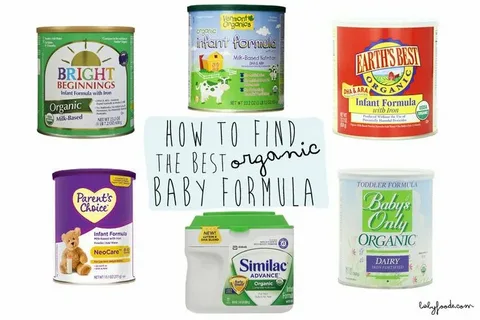Ensuring your baby’s nutrition is both safe and fresh is crucial for their health and development. Proper baby formula storage plays a vital role in maintaining the quality of the formula and preventing contamination. In this article, we’ll explore the best practices for storing baby formula to keep it fresh and safe for your little one.
Why Proper Baby Formula Storage Matters
Baby formula is a sensitive product that can spoil or become contaminated if not stored correctly. Improper storage can lead to bacterial growth, loss of nutrients, and unpleasant tastes or odors, all of which can affect your baby’s health. Following the right storage guidelines helps ensure your baby receives the maximum nutritional benefits without any risks.
Best Practices for Storing Powdered Baby Formula
Keep the Container Sealed and Dry
Powdered baby formula should always be stored in its original container with the lid tightly closed. This protects the formula from moisture, air, and contaminants. Avoid transferring the formula to other containers, as this can increase the risk of contamination.
Store in a Cool, Dry Place
The ideal storage spot for powdered formula is a cool, dry cupboard away from direct sunlight or heat sources. Avoid storing formula near the stove, dishwasher, or refrigerator, as fluctuating temperatures and humidity can degrade the product’s quality.
Follow the Expiry Date and Usage Guidelines
Always check the expiry date printed on the formula packaging and avoid using formula past this date. After opening, use the formula within the time frame recommended by the manufacturer—usually within one month.
Storing Prepared Baby Formula Safely
Refrigerate Immediately
If you prepare formula in advance, it should be refrigerated within two hours to prevent bacterial growth. Store the prepared formula in a clean, airtight container in the back of the refrigerator where the temperature is most consistent.
Use Within 24 Hours
Prepared formula should be used within 24 hours of refrigeration. Never freeze prepared formula, as freezing can alter the texture and nutritional content.
Discard Leftover Formula
Once your baby has started feeding from a bottle, any leftover formula should be discarded within one hour to avoid contamination from saliva and bacteria.
Tips for Traveling with Baby Formula
When traveling, carry powdered formula in its original sealed container and prepare bottles using safe water sources. Keep prepared bottles cold in an insulated cooler and use them within the recommended time frames for freshness and safety.
Conclusion
Following the right baby formula storage techniques is essential for preserving the formula’s freshness and ensuring your baby’s safety. Always store powdered formula in a sealed container in a cool, dry place, refrigerate prepared bottles promptly, and adhere to usage guidelines. By implementing these best practices, you can provide your baby with nutritious and safe formula every time.

